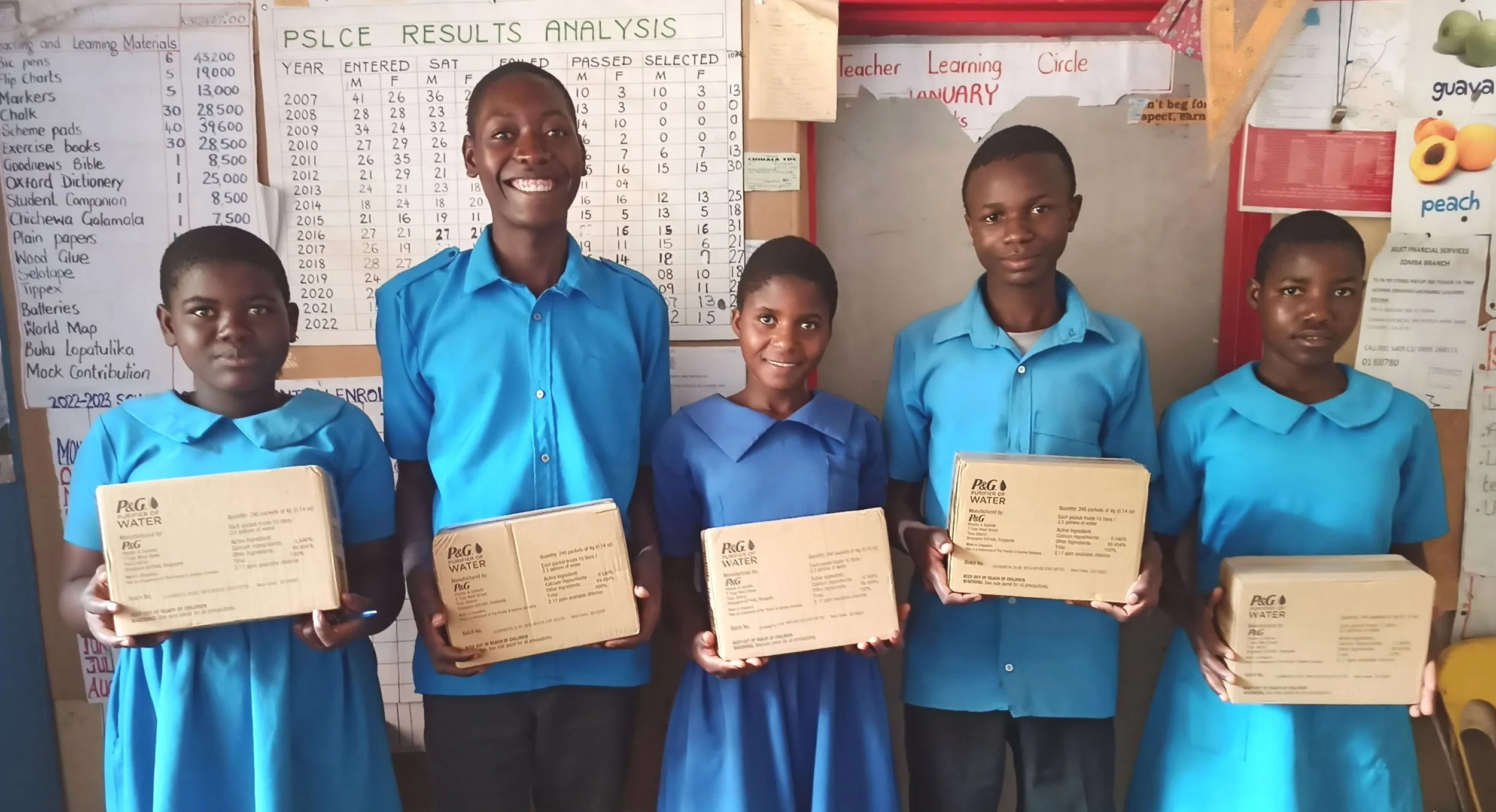Undeterred by the overwhelming circumstances, FPI sprang into action. Recognizing the urgent need for clean water, FPI devised a multifaceted emergency response plan. A critical component of this plan is the distribution of 1,135,200 P&G Purifier of Water packets to the affected families while long-term water infrastructure repairs are underway. Schools, now serving as makeshift shelters for displaced populations alongside students, are prioritized for this intervention. Eleven schools across Zomba District received these life-saving packets, ensuring access to clean water for thousands.
FPI's also partnered with the Zomba District Health Office to distribute Emergency Cholera Response Contingency supplies. This proactive approach ensures health authorities are well-equipped to combat any potential cholera outbreaks, safeguarding public health. FPI and Team Rubicon joined forces to provide urgent aid. Volunteers rushed to assist displaced families, focusing on areas like Lake Chilwa and Chisi Island hit hardest by flooding. After immediate response efforts, FPI assessed partner needs for recovery. They aided displaced families and communities, including those at Chulochosema Presbyterian Church and surrounding areas, with essential supplies and support. In Zomba district, FPI helped Chuluchosema CCAP, where 77 households from 33 villages were affected. With supplies like water filters and hygiene kits, they ensured clean water and sanitation, preventing further crisis.
FPI's timely intervention significantly impacted the lives of Malawians grappling with the aftermath of Cyclone Freddy. By ensuring access to safe drinking water, they are effectively preventing a secondary disaster – a waterborne disease outbreak that could have had catastrophic consequences. This impactful initiative highlights the importance of WASH programs, especially in the face of natural disasters. By providing clean water and sanitation solutions, FPI is not just mitigating a current crisis, but also investing in the long-term health and well-being of Malawian communities.


